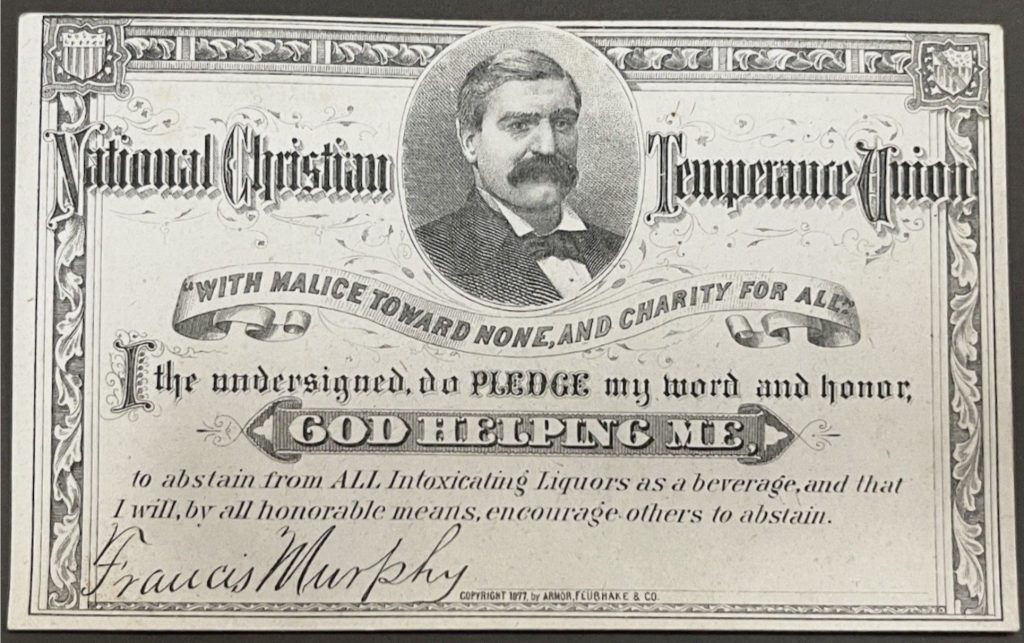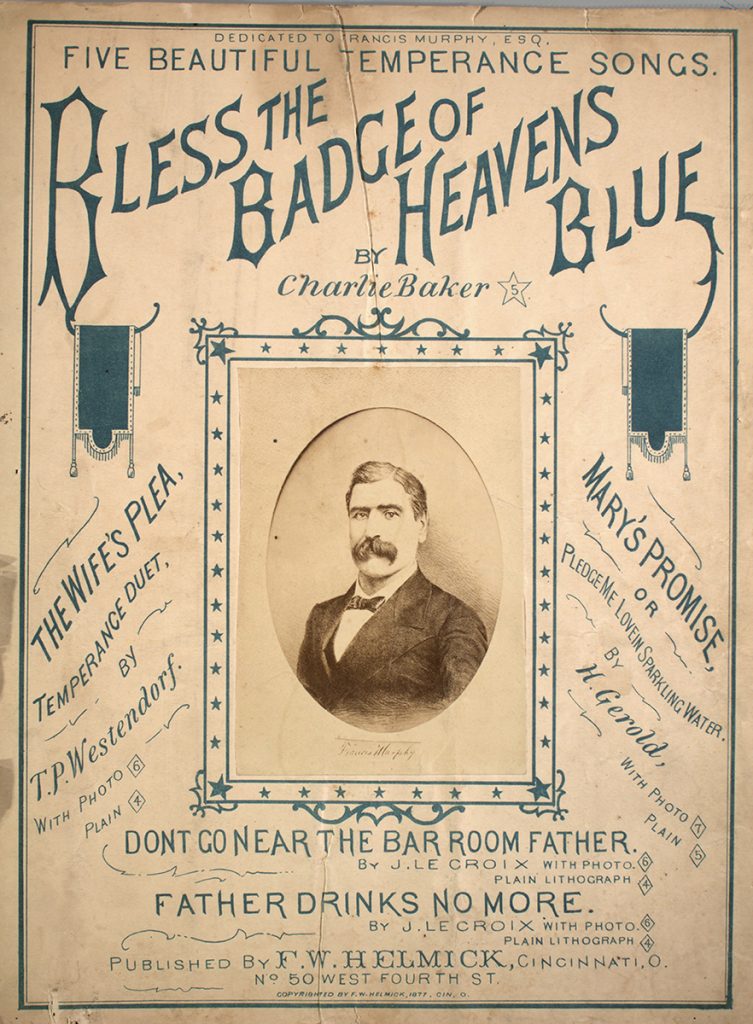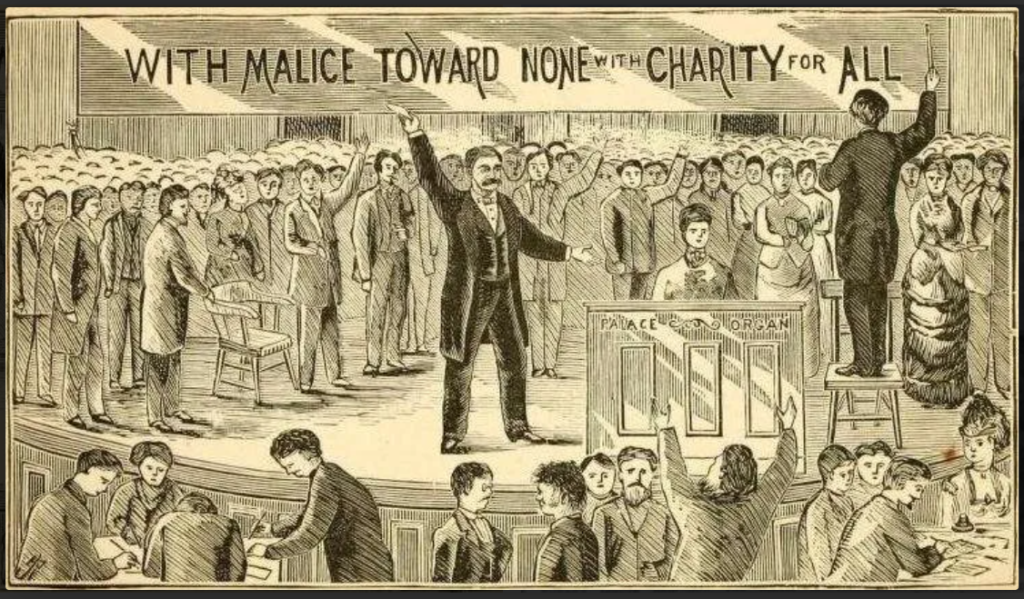Step Seven and Recovery:
A Tale of Two Centuries
No alcoholic or addict can ever hope to recover without profoundly reorienting their attitude and relationship toward life and the world around them. Step Seven found in the 12 Steps of Alcoholics Anonymous is central to this transformation. It provides:
Humbly asked Him to remove our shortcomings.
This step, in operation with preceding steps where we identify and admit our shortcomings, sparks a deep and effective personality change that revolutionizes our whole attitude toward life, toward our fellows, and toward God’s universe. The Big Book calls this change a “spiritual experience,” without which no addict or alcoholic can be returned to health.
No matter what sort of therapy a client pursues, this vital, spiritual experience is the determining factor that separates persons who live “happy, joyous, and free,” on the one hand, from those who are consigned to an existence spent in the shadow of a chronic relapsing disease, on the other.
From time to time, we hear neophytes in our recovery program ask what alcoholics did before there was Step 7. Were they just out of luck? Was there any help for them at all? These are awesome questions, because addiction and alcoholism didn’t just spring into being when Bill Wilson and Dr. Bob Smith formed Alcoholics Anonymous. America had been keenly preoccupied with alcoholism for more than 100 years before AA. Understanding this highlights not only why the 12 Steps were a ground-breaking response to treating this disease, but also why they remain the most effective treatment therapy in existence today.
The rapid rise of alcohol-related problems in America during the 1800’s spawned what history calls The Temperance Movement, a myriad of social and political initiatives, mutual aid societies, and networks of homes, hospitals, and institutes, loosely connected by a common goal to persuade or help people moderate or eliminate their consumption of alcohol. One of the most prominent organizations was the Murphy Movement. We will comment on this one because it typifies America’s interest in temperance and the results of its efforts.

Frankly, when Francis Murphy came to town, it was the biggest event its inhabitants had ever seen. A temperance parade would roll down the city’s cobblestone streets, surrounded by townsfolk, street vendors, and protestors made up largely of women and children holding temperance signs. The rally itself happened in the city exhibition hall or large church building. There, the spectators eagerly awaited the man of the hour, Francis Murphy. That man understood temperance. An Irishman, saloon keeper, convicted killer, and former inebriate, Murphy had given his life to God, reformed, and gratefully devoted his life to the temperance cause.
The program included victory reports from around the country and testimonies of interested people. If available, a town drunk might take the stage promising to sign the temperance pledge and stay sober. A children’s choir commonly serenaded the crowd with beloved temperance tunes. As the rally drew to a close, Murphy would plead with the audience to save themselves and their families and communities. Above all, he called for them to sign the so-called temperance pledge, which conveniently was printed on a card. It read:
With Malice Toward None, and Charity for All
I the undersigned, do PLEDGE my word and honor,
GOD HELPING ME
to abstain from ALL Intoxicating Liquors as a beverage, and that
I will, by all honorable means, encourage others to abstain.
During his career spanning four decades, Murphy obtained more than 10,000,000 signatures in America alone. That’s more than 15% of the United States’ average census population. And remember – Murphy was but one of hundreds of champions for temperance who toured the country.
Having enjoyed such wide support, we might expect that The Temperance Movement found success in getting and keeping alcoholics sober. But that’s not what happened. While moderate and heavy drinkers as a whole reported some relief, the alcoholics remained unaffected. The movement’s results turned out to be exactly what the popular Victorian writer Samuel Smiles feared: “Try and reform a … habitually drunken person, and in a large majority of cases you will fail.”
Nationwide, the consumption of alcohol remained steady, as did alcohol-related crimes and poverty. A pessimistic mood began to take hold that the “moral persuasion” methods of The Temperance Movement had failed. Reformers turned to political action, seeking alcohol bans at the local, state, and national levels, culminating in the passage of Prohibition in 1919.
Now, during the temperance period there were some reported cases of alcoholics who actually recovered. Francis Murphy was one of them, as were some other temperance reformers. The noted American psychologist William James also reported cases in “The Varieties of Religious Experience” (1902). What secret did these recovered alcoholics know that others didn’t? The common belief was that their return to health was effected by their religious conversions generally. It was not until 1908, however, when a Lutheran minister by the name of Frank Buchman made a wonderful discovery that put the nuts and bolts of these recoveries into clear perspective.
At the time of his discovery, Buchman actually was attending a religious convention in Great Britain. Significantly, leaving America for Great Britain Buchman also had been embroiled in a funding dispute with his organization’s board of directors, and the matter weighed heavily on him. He’d been wronged and harbored deep resentments. Sometime during the convention, however, during a moment of reflection, he experienced an epiphany. Buchman would later say:
I sat there and realized how my sin, my pride, my selfishness and my ill-will, had eclipsed me from God in Christ. …I was the center of my own life. That big “I” had to be crossed out. I saw my resentments against those men standing out like tombstones in my heart. I asked God to change me and He told me to put things right with them. It produced in me a vibrant feeling, as though a strong current of life had suddenly been poured into me and afterwards a dazed sense of a great spiritual shaking-up.
The vibrant feeling and spiritual shake-up within Buchman were a part of what AA calls a “spiritual experience”. In Buchman’s case, this experience included him putting right all of the things in his life that he knew were objectionable. The effect was electric. This previously moody, unhappy soul was seized with a new outlook on life. In place of lifelong selfish habits there emerged within him a light, power, freedom, and happiness that seemed to defy explanation.

We want here to impress the enormity of Buchman’s experience on the Reader. By way of further illustration, please consider Luke 6 where the Lord gives the Sermon on the Plain. The Lord asks his listeners, “If you love those who love you, what credit is that to you?” and urges them to do the unthinkable, to wit, “Love your enemies, do good to them, and lend to them without expecting to get anything back. Then your reward will be great.” In the same passage, He also says, “Do not judge, and you will not be judged. Do not condemn, and you will not be condemned. Forgive, and you will be forgiven. Give, and it will be given to you… For with the measure you use, it will be measured to you.”
In modern times, we may be tempted to think that Jesus is fond of hyperbole, that He is overstating matters to make a point. Alternatively, we might see these things as simple injunctions against bad behavior presumably intended to help crotchety people get along with each other. But, what if the Lord had something more in mind? What if these teachings aren’t intended as simple do’s and don’ts. What if He said these things knowing that there is an altogether uncommon blessing awaiting those who actually do them?
What Buchman discovered is that taking the Lord’s words at face value and vigorously applying them results in an unexpected gift: a sense of peace, liberation, empowerment and fulfillment for which no material thing or pleasure can ever substitute. The command to love our neighbors as ourselves, paradoxical as it seems, principally is meant for us. We are the primary beneficiaries, and our daily adherence to this command also imbues us with a profound sense of meaning, purpose, and gratitude. We feel, as C.S. Lewis might say, “surprised by joy.”
Buchman proceeded to tell others about this wonderful thing which he had found, ultimately leading to the creation of the Oxford Group. The group was roundly criticized for being short on theology, but nobody questioned the inner character and overwhelming spiritual vitality of its membership. The seemingly novel wisdom of the group was brought to the United States by a clergyman, Sam Shoemaker. Here, it was passed on to the alcoholic Ebby Thatcher, who shared it with Bill W.
Buchman’s approach carried weight and depth; it was able to reach alcoholics and relieve them of their illness. Their minds renewed, the grip of drink fell from them like foul garments. The alcoholics within the Oxford Group not only quit drinking, they remained quit as long as they maintained their spiritual fitness. To family, friends, and associates (not to mention, themselves) it was a miracle.
Bill W, beaten down by alcohol and desperate, proved to be a willing student. Fortunately for alcoholics everywhere, he also was an astute observer and meticulous thinker. Bill W reformulated the lessons learned from the Oxford Group into the 12 Steps, making the spiritual experience available to all who worked the steps. Henceforth, alcoholics actually recovered from what the medical and scientific communities previously believed to be a hopeless condition of mind and body.

As a practical matter, in Step 7 we are going to eliminate our shortcomings and change them with new behaviors. We’re going to swap our defects of character for virtues. It’s not necessary that we put pen to paper again, because the previous steps have made us well aware of our faults, circumstances in which they manifest, and what is needed to turn these weaknesses into strengths. Our mental list, however, might look something like this:
| Shortcoming | Strength |
| Selfish | Considerate |
| Dishonest | Honest |
| Resentful | Forgiving |
| Fearful | Trusting |
| Envious | Benevolent |
| Prideful | Humble |
| Impatient | Patient |
| Intolerant | Tolerant |
Understanding our mission, we humbly ask God to remove our shortcomings. The Big Book suggests the following prayer:
“My Creator, I am now willing that you should have all of me, good and bad. I pray that you now remove from me every single defect of character which stands in the way of my usefulness to you and my fellows. Grant me strength, as I go out from here, to do your bidding. Amen.”
If we are mindful and do our part working this step, the spiritual experience happens automatically. God gives us a new heart, and he puts a new spirit in us. He removes from us our heart of stone and gives us a heart of flesh. See Ezekiel 36:26. We find ourselves surprised by joy, imbued with a sense of peace, liberation, and gratitude that transcends material concerns, and the obsession for alcohol is lifted. Spirituality becomes a guiding force in our lives, empowering us to live authentically and to manage our lives in accordance with God’s will.
